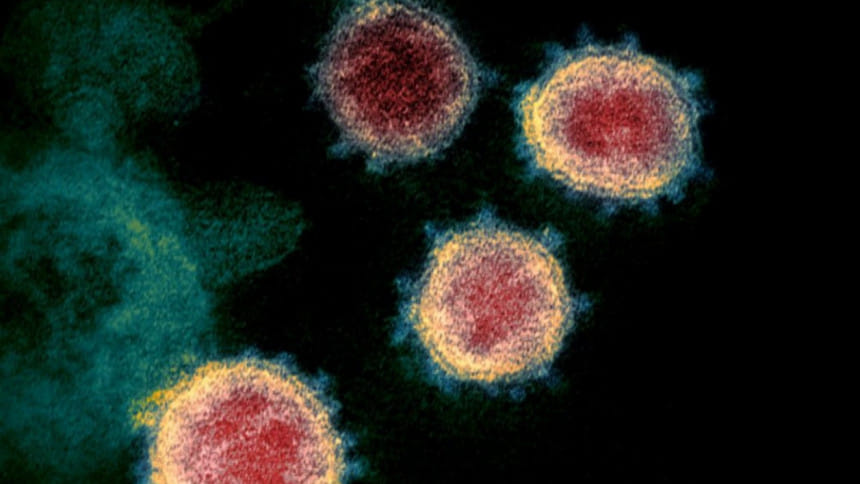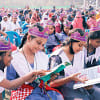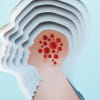SARS COV-2: Researchers find 34 unique mutations in Bangladesh

The SARS COV-2, the virus that causes Covid-19, has mutated 4,604 times in Bangladesh since the first week of December last year, of which 34 were unique mutations which means they do not match with any other mutation found in the world.
The researchers of Bangladesh in collaboration with Malaysia's Monash University have revealed this information after analysis of genome sequences.
The researchers named the 34 unique mutations of SARS COV-2 as "Bangla Mutation".
Of the unique mutations, most cases have been found in Dhaka, Chattogram and Chandpur regions, the researchers said.
Adnan Mannan, associate professor of Department of Genetic Engineering and Biotechnology of Chittagong University (CU), Mahbub Hasan, assistant professor of CU Genetic Engineering and Biotechnology Department, and Rasel Das, assistant professor of Biochemistry and Biotechnology of University of Science and Technology Chattogram, led the study.
AMAM Junaid Suddique, head of Pathology Department of Chattogram Veterinary and Animal Sciences University, and SM Mahbubur Rashid, a teacher of Dhaka University, supervised the research while Hamid Hossain and Nazmul Hasan from Monash University, Malaysia, and Asma Salauddin, Rasheduzzaman and Mehedi Hasan, three students of CU, contributed in analysing the data and information.
The study was published in the International journal Virus Research.
Dr Adnan, one of the researchers, said there are 34 unique mutations in the country and they will have to be studied further to see whether they are responsible for increasing the number of Covid-19 cases currently in the country and whether they are more or less potent in spreading infection than the previous mutations.
Rasel Das said the significance of the study is that has found some unique mutations of SARS COV-2 and that the tendency of mutation in D164G was frequent.
He said their study will make a guideline on further research to study whether the vaccines are effective against the unique mutations found in the country.
Mahbub Hasan said it is important to continue research on the unique mutations found in the country to ensure none of them have the potential to cause more harm.
AMAM Junaid Siddique said the study revealed the necessity of further research on SARS COV-2 mutations found in the country. Samples should be collected from those who come from abroad and who are affected seriously to know whether they are infected by any particular mutations and whether the vaccines are effective against them.
To read the scientific article: https://www.sciencedirect.com/science/article/pii/S0168170221000976?via%3Dihub

 For all latest news, follow The Daily Star's Google News channel.
For all latest news, follow The Daily Star's Google News channel. 








Comments